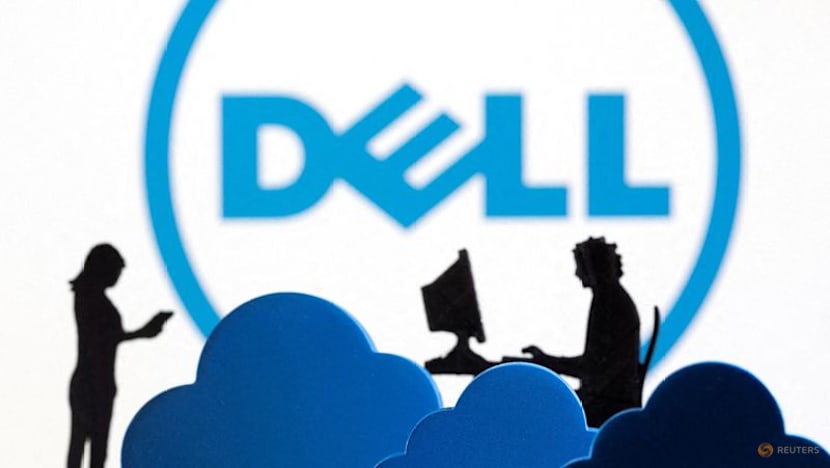Dell raises growth targets for next four years on strong AI server demand

FILE PHOTO: 3D printed clouds and figurines are seen in front of the Dell logo in this illustration taken February 8, 2022. REUTERS/Dado Ruvic/Illustration/File Photo
Dell on Tuesday nearly doubled its annual profit growth target for the next four years, betting on robust demand for its servers that power artificial intelligence workloads.
The company, whose customers include Elon Musk's AI startup xAI and CoreWeave, lifted its expectations for annual growth in adjusted earnings per share to at least 15 per cent from around 8 per cent.
Dell also said it expects compounded annual revenue growth between 7 per cent and 9 per cent for the next four years, up from its prior view of 3 per cent to 4 per cent.
Insatiable demand for servers that provide the computing power needed to run services such as ChatGPT has turned Dell into one of the biggest winners of the generative AI boom.
Its strong profit growth expectation may also ease investor concerns about the margin hit from competition in AI servers and the high costs of building the products.
"Dell has a volume advantage due to its scale, established supply chain, and relationships with major buyers, compared to rivals like Super Micro," Emarketer analyst Jacob Bourne said.
Dell also reiterated its third-quarter and annual forecasts. It had raised its expectation for AI server shipments in August to $20 billion for fiscal 2026.
"Customers are hungry for AI and the compute, storage and networking we provide to deploy intelligence at scale," CEO Michael Dell said, adding that the company was in the early stages of AI adoption despite two years of progress.
Dell expects long-term compounded annual revenue growth of 11 per cent to 14 per cent for the infrastructure solutions group - home to its storage, software and server offerings. That compares with its earlier expectations of 6 per cent to 8 per cent.
The company continues to expect revenue growth of 2 per cent to 3 per cent for its client solutions group, which includes personal computers. Strong competition in the consumer market has hit the business in recent years, even as Dell keeps a strong position among enterprise clients.













